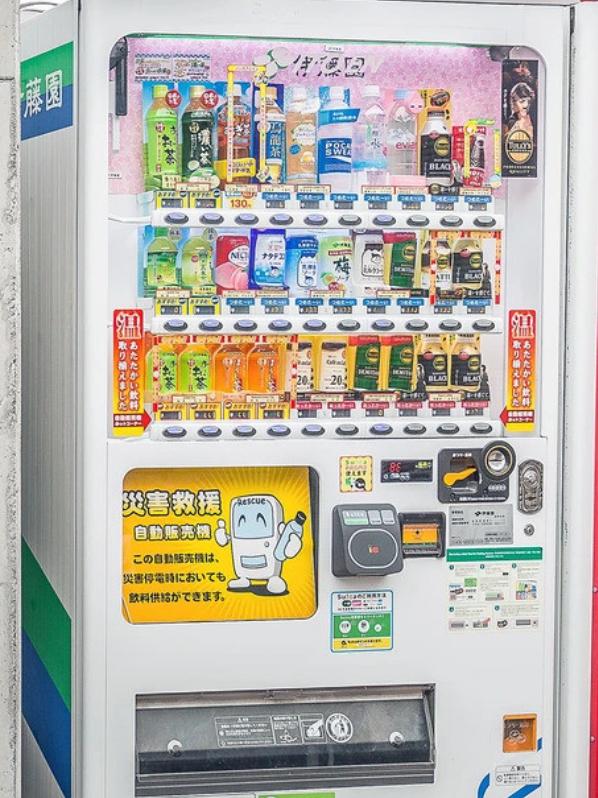Although Japan is known as an advanced country with modern technology, paradoxically, cash still plays a significant role in the lives of its people. Japanese people value privacy and prefer paying with cash to avoid leaving a personal spending trail. Using cards or electronic payment apps could reveal their financial information and shopping habits, which they are unwilling to share.
Compared to other countries, the card payment system in Japan has developed more slowly. Many small shops, especially in rural areas, have not yet installed POS machines to accept cards.

Vending machines are an integral part of Japanese culture.
Visitors can easily pay with credit cards at bustling shopping districts in Tokyo such as Omotesando or Ginza. However, cash remains the primary method of payment in many other places. Izakaya (traditional bars), ryokan (traditional inns), and Shinto shrines often only accept cash. Even though card payments are common in major cities like Tokyo and Osaka, visitors should still bring Japanese yen when visiting other areas.
Recently, Japan issued new banknotes for the first time in 20 years, primarily aimed at combating counterfeiting. However, this move has created a dilemma: the new banknotes may not be widely accepted.

Japan recently issued new currency aimed at combating counterfeiting.
The Bank of Japan said that while cashless payments are becoming increasingly popular, it predicts that "the demand for cash, which can be easily used by anyone, anywhere, and at any time, is likely to continue to play a significant role as a means of payment."
The problem lies in the fact that Japan's outdated machinery systems are not designed to recognize the new banknotes. These devices, including vending machines and ticket machines, need to be upgraded. According to the Japan Association of Vending Machine Manufacturers, nearly 80% of vending machines nationwide need to be upgraded to accept the new banknotes.

The conflict between old machines and new banknotes creates many disadvantages.
Most vending machines in Japan are older models and have not been updated to accept the new banknotes. People face difficulties paying for purchases at vending machines, especially in areas far from the city center.
Japan's new banknotes incorporate advanced anti-counterfeiting techniques, including 3D portrait images that rotate when tilted. This means older vending machines are not equipped with the appropriate technology to authenticate the new currency. Equipping millions of vending machines across Japan with this new solution will take considerable time and money, according to Business Insider.

People hope the government will soon rectify this situation so that it doesn't significantly affect their daily lives.
Local tour guides often encourage tourists to bring cash for convenience when using vending machines.
Since the beginning of the year, international tourists have flocked to Japan due to the weak yen. The currency's decline in the first week of July is believed to be its lowest level in 38 years against the US dollar.

 VI
VI EN
EN


































